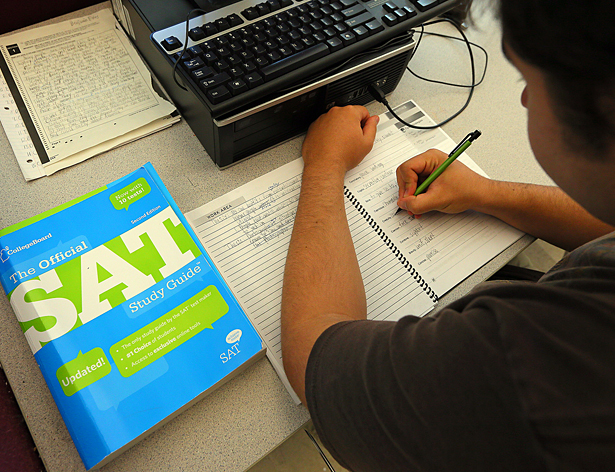
This State Had the Highest Average SAT Score
Minnesota had the highest average SAT score among the 50 states, according to recent data.
The Scholarship Institute analyzed the highest and lowest SAT scores among the U.S. states and found that Minnesota had an average SAT score of 1263. The national average currently lands at 1060. The minimum score on the SAT is 400, and the highest score is 1600.
LOWEST SCORE STATES
Delaware had the lowest SAT score among all the states with an average SAT score of 984—76 points below the nation’s average.
Other states that scored low include Idaho with an average score of 985 and Florida with an average score of 993.
METHODOLOGY
The Scholarship Institute compiled the national and individual state SAT Suite Results for 2021 from the College Board to find out which states had the highest and lowest SAT scores. Among the 50 states, the institute compared each state’s mean SAT score with the national average to understand which states had a mean score higher or lower than the overall U.S. average.
PUSH FOR TEST-OPTIONAL
In recent years, a number of colleges around the nation have gone test-optional in admissions, limiting the role of standardized exams in the college admissions process.
According to the National Center for Fair and Open Testing (FairTest), nearly 80% of four-year colleges will not require the SAT or ACT for admissions this year. Late last year, the University of California system decided to end the use of standardized testing in admissions for good.
“The UCs prepare California’s future leaders in academia, in industry, and in public service,” says Mo Hyman, executive director of College Access Plan, in a press release. “It is our hope that this agreement helps UC officials to align with the system’s vision to recruit and educate California’s best and brightest from all backgrounds. We also hope it causes public institutions everywhere to rethink their relationship with The College Board and reliance on its products, which perpetuate privilege and exacerbate racism in institutions of higher learning.”
Sources: Scholarship Institute, FairTest, P&Q











Questions about this article? Email us or leave a comment below.